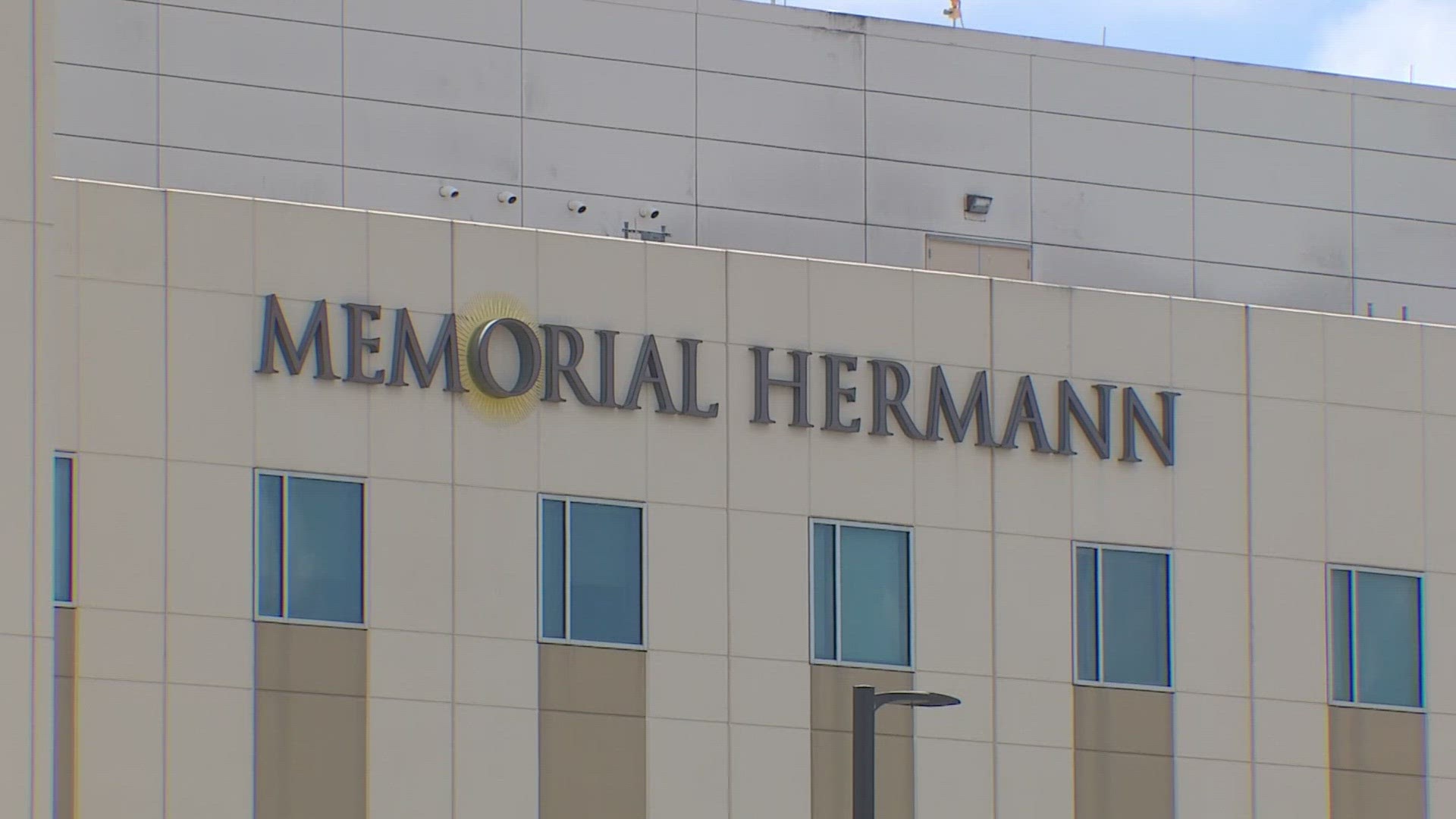FORT BEND COUNTY, Texas — The death of a Houston man who collapsed while working outside was caused by the heat, according to the Galveston County Medical Examiner.
Felipe Pascaul, 46, was pouring concrete at a job site in Fort Bend County when he collapsed around 4:25 p.m. and went into cardiac arrest, the ME said. He was rushed to Memorial Hermann Hospital in Pearland but he didn't survive.
The ME said he died from hyperthermia or a dangerously high body temperature caused by a failure of the heat-regulating mechanisms of the body to deal with the heat.
Pascaul died on June 16 but the cause of death was just released today making him the 14th confirmed heat death in Texas this year, according to the state health department.
Heat deaths in Texas
Eleven of the Texas heat-related deaths occurred in Webb County, which includes Laredo. The dead ranged in age from 60 to 80 years old and many had underlying health conditions, according to Webb County Medical Examiner Dr. Corinne Stern.
The area has a higher poverty rate than the state average and that compounds the suffering, Stern said, and a lot of people can't afford air conditioning.
On Tuesday, an 80-year-old man and a 67-year-old woman were found dead inside an extremely hot home in Beeville, near Corpus Christi, police said.
Beeville Police Department Chief Kevin Behr said Jose and Maria Vasquez were found in the front room of their small house and the door was open.
There was no sign of foul play, police said, and autopsies were being done to determine if the deaths were heat-related, KIII, our sister station in Corpus Christi reported.
Houston hospitals see uptick in heat-related issues
In the Houston area, the brutal heat combined with high humidity has caused "feels-like" temperatures to soar above 110.
Houston Methodist Hospital said they've been seeing more patients coming to emergency rooms with heat-related issues.
The flagship hospital in the Texas Medical Center reported four to six cases of illnesses including heat cramps, heat exhaustion, heat stroke and dehydration each day last week.
Systemwide -- including the flagship location and Methodist hospitals in Baytown, Clear Lake, Sugar Land, The Woodlands, West and Willowbrook -- they saw 30 - 40 heat-related cases each day.
“What we’re seeing now is a sudden or dramatic increase in temperatures and this is causing patients to become dehydrated extremely quickly," said Dr. Neil Gandhi, regional medical director for Houston Methodist Hospitals. “You’ll start to get dizzy, or you get that lightheaded feeling. Stop, hydrate, get out of the heat, anywhere that’s cool.”
He said about 80% of the patients were older than 65.
Physicians urge people to watch out for vulnerable family members, friends and neighbors, stay hydrated and limit outdoor exercise to early mornings or evening hours.
If someone starts to get confused, passes out or has a very high temperature, it's time to go to the hospital.
Prevent heat-related illnesses
- Drink lots of water.
- If you’re working or exercising outside, limit it to early morning or the evening when it’s cooler.
- If you have to be outside during the heat, wear light-colored, loose clothing.
- Do not leave children, senior citizens, or pets in an unattended vehicle.
- Wear a wide-brimmed hat and use sunscreen.
- Seek air conditioning. If you’re not at home, consider visiting malls, movie theaters or libraries.
Symptoms of dehydration
- Thirst
- Dry mouth
- Dark yellow urine
- Dry, cool skin
- Headache
- Muscle cramps
How to treat dehydration
- Move inside if possible
- Drink water or sports drinks with electrolytes
- Eat regular meals to replace salt lost in sweat
- Steer clear of alcohol
Symptoms of heat exhaustion
- Heavy sweating
- Cold, pale and clammy skin
- Headache
- Nausea and vomiting
- Muscle cramps
- Dizziness
- Fainting
- Fast, weak pulse
How to treat heat exhaustion
- Move to a cool place
- Loosen or remove your clothing
- Use cool, wet cloths or take a cool bath
- Sip water or drinks containing electrolytes
- If you’re throwing up or can’t cool down, get medical help
Sources: CDC, UT Health

